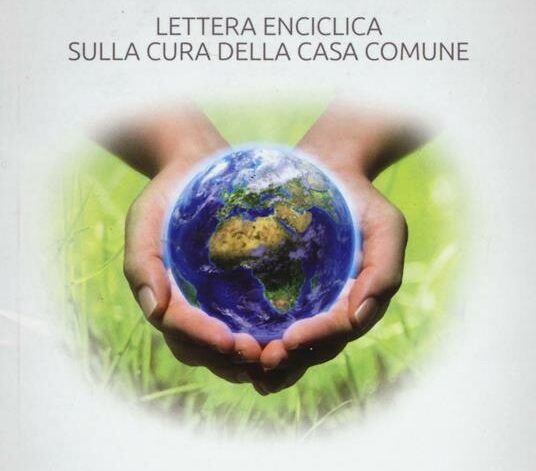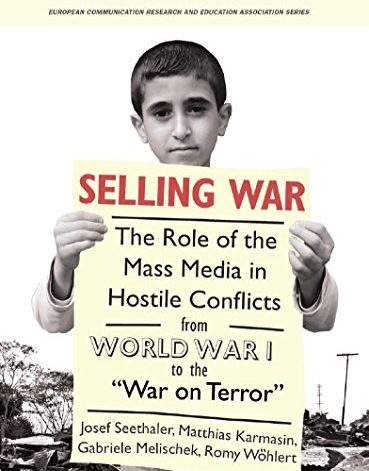From Sustainable Development to Pope Francis’ Encyclical “Laudato Si’” (Praise be to you)
Abstract: The Pope’s encyclical marks a fundamental turning point in reconsidering the relationship between humanity and nature. Our current lifestyles and production methods are inadequate for addressing the issues of poverty and social justice. We must prioritize preventing diseases caused by human action, not just curing them.
Introduction
For nearly forty years, environmental issues have progressively gained significance in governmental policies and public awareness. It is sufficient to note that until the 1980s, there were virtually no university courses that incorporated the adjective “environmental” into traditional disciplines, a gap now filled by numerous academic and educational programs. Over time, however, the meaning and framing of these issues have gradually evolved.
When Peccei and the Club of Rome first addressed the topic in 1973, their focus was primarily on resource depletion. This was followed by concerns regarding nuclear power and, more broadly, the risks posed by industrial processes capable of causing serious accidents—from Seveso and Bhopal to Three Mile Island, Chernobyl, Fukushima, and others. Urban air and water pollution, as well as waste management, also became matters of increasing concern. Today, the most urgent health-related issues include biotechnology, genetically modified organisms—including, in some respects, humans—and the broader artificialization of nature.
From the Brundtland Commission to Pope Francis
“Sustainability” is the most commonly used term in discussions about the environment. The concept of sustainable development originates from the principle introduced in 1987 by the World Commission on Environment and Development, also known as the Brundtland Commission, established by the United Nations. Representatives from around the world identified sustainable development as “the criterion for evaluating the changes produced by humans on the environment” and defined it as a model that “meets the needs of the present without compromising the ability of future generations to meet their own needs” (U.N. World Commission on Environment and Development, 1987: 43).
This was a necessary compromise to reconcile the demands of Western countries with those of developing nations, particularly China, India, and countries in Southeast Asia, which collectively house over three billion people. Western governments responded to the demand of their citizens to be protected from pollution that threatened their health. Furthermore, an economy based on the exploitation of non-renewable natural resources was severely damaging the environment. Politically, environmentalist parties gained strength, supported by a public increasingly attentive to ecological issues. These parties replaced both the historic communist parties and the radical left-wing groups that, in the 1970s, had dominated political life through radical opposition to existing systems.
The definition of “sustainable development” itself is a linguistic paradox, a quasi-oxymoron: development, if truly sustainable, need not have an adjective—genuine development is inherently sustainable. It might have been more appropriate to use the term “sustainable growth,” indicating that without fundamentally altering economic structures and production methods, restrictions could be introduced to limit emissions that are harmful to health and capable of causing environmental disasters.
Unfortunately, this modest yet essential compromise between two conflicting needs has, over time, evolved into a pseudo-ideology that has hindered critical reflection on development models, rendering the concept of “sustainability” overly broad and sometimes hollow. Initially, one might have described it as an appropriate political compromise; however, in many cases, “sustainable development” has become a form of deception, sometimes unconsciously, masking deeper issues.
The “degrowth” movement, advocating for a significant reduction in traditional economic growth, has adopted the most radical stances in favor of environmental protection. Yet, this approach is often characterized by negativity and protest, proposing a decrease in growth rather than a fundamental redefinition of development that prioritizes well-being and ecological balance through alternative means.
Since 1987, nearly four decades have passed. The world’s economic and political landscape has undergone profound changes. Thanks in part to that initial compromise, we now possess the technological tools and scientific knowledge necessary for economic development that minimizes or eliminates environmental harm and even benefits health. Pope Francis acknowledged this in his encyclical Laudato Si’, which marked a decisive turning point in the Church’s thinking by placing the relationship between humanity and nature at the center of reflection and making a specific appeal for health protection.
The first part of the encyclical envisions a profound change in this relationship through rigorous ethical and theological reflections. Although the second part contains some uncertainties and ambiguities, it nevertheless provides a significant foundation for overcoming the pseudo-ideology of sustainable development.
An Analysis of the Encyclical
Regarding the relationship between bioethics, medical ethics, and the environment, Laudato Si’ suggests a reconnection between bioethics and ecological concerns that has been overlooked as the pseudo-ideology of sustainable development reduced environmental issues solely to economic and technical problems. The Church has historically been mindful of the relationship between humanity and the natural world. However, Christianity—and more broadly, the Judeo-Christian tradition and Abrahamic religions—has often been criticized as contributing to the environmental crisis. This hypothesis, when interpreted in an integralist manner, has frequently relied on unfounded assumptions (see the classic essay by Passmore, 1974).
Nevertheless, Pope Francis courageously acknowledges some responsibility for this worldview, including that of Christianity, which has at times regarded nature merely as an object to be exploited. It is noteworthy that, in recounting the recent history of the Church’s ecological thought, Pope Francis begins with a quote from Paul VI in 1971. Today, such a stance might appear radical and environmentally conscious, but when contextualized historically, it reflects a respect intended in a pre-modern approach. Paul VI emphasized that “the urgent need for radical change and a critique of extraordinary technological development and economic growth” is unacceptable unless “accompanied by authentic moral progress.” This was during a time when the Church sought to uphold traditional values and slow the rapid social upheaval, which was perceived as both radical and swift.
John Paul II also addressed environmental concerns. He stated that “the destruction of the human environment is severe, not only because God has entrusted humanity with responsibility for the world, but because human life itself is a gift that needs protection from various forms of degradation.” He called for changes in lifestyles, production patterns, consumption habits, and the institutional structures that govern societies. Unlike Paul VI, who was primarily concerned with safeguarding traditional values, Pope Wojtyła (John Paul II) accepted the realities of the modern world and nevertheless hoped for the development of a more respectful society capable of reworking its relationship with nature.
Further analyzing the views of his predecessors, Pope Francis revisited Benedict XV, whose stance appears more conservative than the current development paradigm. Ratzinger argued that it is essential to eliminate “the structural causes and dysfunctions of the world economy and to correct growth models.” He does not, therefore, question the growth paradigm itself, as Pope Francis—and, to some extent, John Paul II—do, but instead advocates for correcting it. From this perspective, Ratzinger’s position aligns more closely with the approach of sustainable development. While asserting that the various aspects of the “book of nature” cannot be isolated, he emphasizes the importance of science and doctrine in establishing truth. According to Benedict XV, “evil” stems from “the notion that there are no undisputed truths to guide our lives and that human freedom is therefore unlimited.” By reaffirming the primacy of humanity, Benedict urges us to recognize that “the misuse of nature begins when we see nothing greater than ourselves, nothing other than ourselves.”
The positions of the three predecessors—Pope Paul VI, John Paul II, and Benedict XV—represent distinct moments in the historical development of the Church’s reflection on humanity’s relationship with nature. In moving beyond, Pope Francis elevates the discussion to a different level. His thinking is inspired less by his predecessors and more by a statement of Ecumenical Patriarch Bartholomew, which leads him directly to Saint Francis of Assisi. The Pope concurs with Bartholomew when he states that “degrading the integrity of the Earth by causing climate change, depriving it of its forests, or destroying wetlands … are sins.” He adds that “a crime against the natural world is a sin against ourselves and against God.”
Building on this, we are called to return to the ethical and spiritual roots of our relationship with nature and to distance ourselves from technology that is neither an end in itself nor something that should escape human control. Without solutions that involve a fundamental change in how humans act and think, we risk only alleviating symptoms of the sickness afflicting the Earth. Consumption must be replaced with restraint, greed with generosity, and waste with sharing. We need an asceticism that “involves learning to give and not simply abandon what is useless. This is a way of loving and gradually shifting from personal desire to divine will. It’s liberation from fear, greed, and dependence.” From this statement by Bartholomew, Pope Francis quotes Saint Francis, who declared that “poverty was not merely a guise of asceticism but a radical refusal to turn reality into an object to be used and controlled.”
The Western Model
In Laudato Si’, Pope Francis marks a shift in approach compared to the positions historically held by both the Church and parts of the environmentalist movement. From the perspective of the relationship between the environment and human health, the encyclical emphasizes the need to adopt precautionary principles. Moreover, it acknowledges that nature cannot be manipulated without limits.
Regarding the prevention of pollution-related diseases, the encyclical begins by describing the decline in health that contributes to numerous premature deaths and the spread of less severe yet increasingly widespread ailments, even within the Western world. This observation is noteworthy because, by addressing the challenges faced by the affluent, it implicitly critiques a development model that should not be imitated unquestioningly in poorer nations. Although these countries confront serious issues, they should not seek salvation in the Western paradigm of production and resource exploitation.
The Pope does not issue a subversive critique of Western principles of freedom and justice, nor does he condemn technological progress and improvements in living standards achieved thus far. Instead, he criticizes the “unnatural” attitude of some recent technologies, the exaggerations of genetic modification, and the overall artificialization of the world. The core issue concerns limits: technology, the Pope argues, has solved many problems but has now reached a point where it generates more damage than benefits, particularly when driven by commercial interests.
From an epistemological standpoint, the Pope also opposes reductionist science and technology, which he views as unable to grasp the “mysterious network” of relationships that underlies the natural world. The use of the word “mysterious” emphasizes the awe we should maintain towards creation and God, recognizing that total knowledge is unattainable. For centuries, humanity has sought to break down the universe into its constituent parts, striving for complete mastery while attempting to eliminate the sacred mystery of relationships. This, he suggests, diminishes the profound meaning of creation and our reverence for the divine, which only faith’s grace can restore.
This message invites scientists and technologists to explore new avenues of knowledge that reconcile humans with nature, recognizing that the natural world is not “other” than humanity but intrinsically connected. While Pope Francis encourages what could be called a “radical minority epistemology”—a perspective that has long been emerging—this approach advocates valuing the interconnectedness of all relationships within creation.
An Abandonment of Anthropocentrism?
It cannot be said that Pope Francis adopts an “eco-centric” position in which humans are regarded as equals to “nature.” Rather, he emphasizes that new technologies and calls for respect “help to build an approach to ecology that respects the uniqueness of the place of human beings in the world,” adding a crucial clarification: “and our relationship with our surroundings.” The focus, therefore, shifts from a dichotomy of humans versus nature to the nature of their relationship. These statements are not casual but are rooted in articulate philosophical schools of thought that are often dialectically opposed.
According to the Pope, science and technology should draw inspiration from the thought of Saint Francis, who “helps us to see how the call for an integral ecology prompts us to open ourselves to categories that transcend the language of mathematics and biology and lead us to the heart of what is truly human.” This implies that what is “truly human” remains inscrutable, and our relationship with the complexity of nature cannot be reduced solely to scientific explanation, contrary to many expectations prior to the ecological crisis. Quoting Saint Francis, the Pope highlights that he “unites all of Creation with humanity” and “preaches to flowers and animals, inviting them to pray to the Lord as if they were endowed with reason.”
This perspective challenges the primacy of emotion over reason, suggesting that reality is not merely an object to be used and controlled, but rather that “reality is us.” Even physics teaches us that measurement instruments alter the very object being observed, simply by the act of observation, thus blurring the boundary between object and subject. This invites reflection on the nature of our engagement with the environment—an engagement that must be rooted in humility and reverence.
Encyclical and Health
Returning to health and medicine, the encyclical advocates, above all, for authentic prevention: “In most cases, measures have not been taken until people’s health has been irreversibly compromised.” While considerable resources are allocated to cures, little effort is directed towards preventing diseases caused by pollution. The incidence of cancer, for example, is increasing exponentially in affluent areas. Yet, debates continue as to whether this is due to specific toxic agents or mere chance, rather than acting decisively to shut down suspected emissions. The application of the precautionary principle remains insufficiently rigorous.
Before acting against risky environmental factors, authorities often demand “scientific proof,” which is not always attainable and frequently encounters conflicting opinions and weak authoritative support. While it is true that jobs and profits must be protected to sustain the economy, the Pope’s words urge a lifestyle that is less driven by greed and more in harmony with nature.
Epidemiological research into diseases resulting from air and water pollution receives comparatively little funding, less even than research into cures. Without intending to promote a witch hunt against “polluters,” the encyclical explicitly advocates for a reassessment of this approach. Beyond the health impact of deadly or chronic diseases, such as asthma and cardiovascular conditions, our relationship with the environment significantly influences the quality of life. This includes urban environments that are livable, the presence of public green spaces, architecture that harmonizes with nature, and efforts to eliminate noise pollution. Stress-related illnesses and depression are often inadvertently caused or exacerbated by environmental discomforts such as noise, dirt, and pollution.
This is not primarily the domain of medicine, which focuses on treatment, but rather that of health policy—an area that remains stagnant and, in some cases, seems to have regressed. It is crucial to recognize that environmental challenges require closer integration with bioethics; issues such as biodiversity loss and genetic manipulation, both of which affect humans and the natural world equally, need to be addressed with greater responsibility and caution.
Conclusion
The encyclical emphasizes that the environmental crisis is not an isolated issue but intersects with all facets of human life and the choices that shape it. The Pope insists that we must “hear the cry of the Earth as well as the cry of the poor,” and it is essential to recognize that poverty is no excuse for the exploitation of nature.
Whereas in the past some Christians might have been satisfied with addressing isolated environmental concerns, Pope Francis now calls for an “ecological culture” that transcends partial responses to immediate problems. Instead, humanity is urged to undertake a profound redefinition of its relationship with technology, poverty, and nature itself. Without such a transformation, the Pope warns that even “the best ecological practices could become trapped in the same globalized logic,” thus perpetuating the cycle of destruction.



